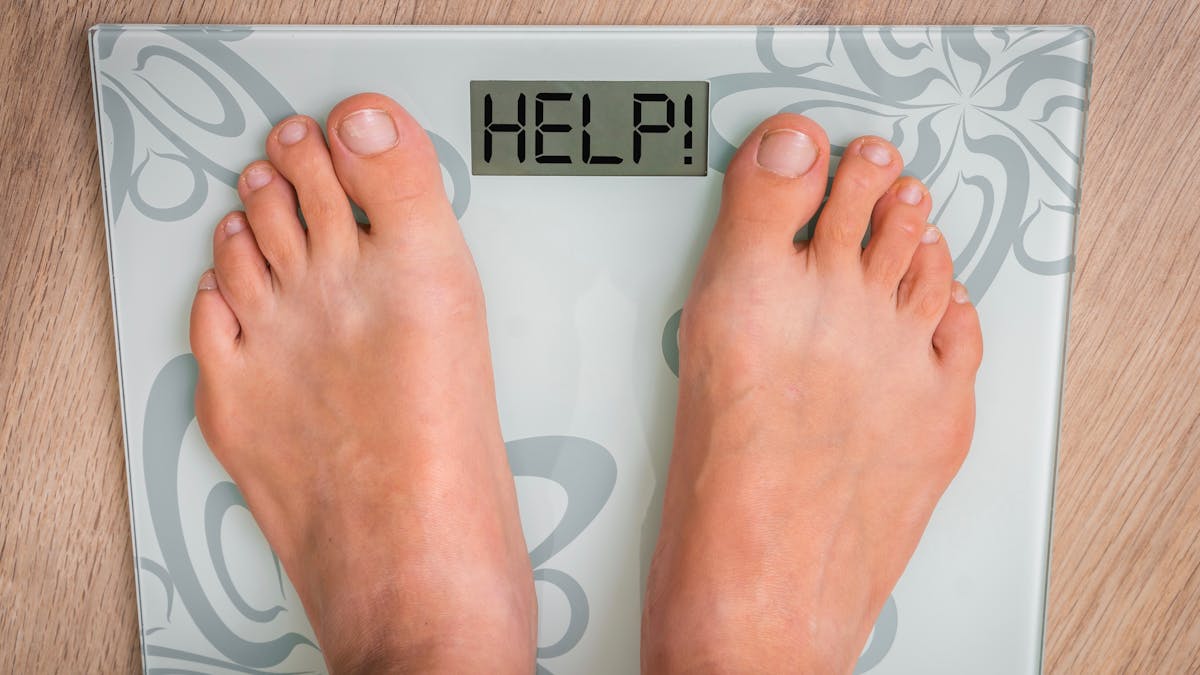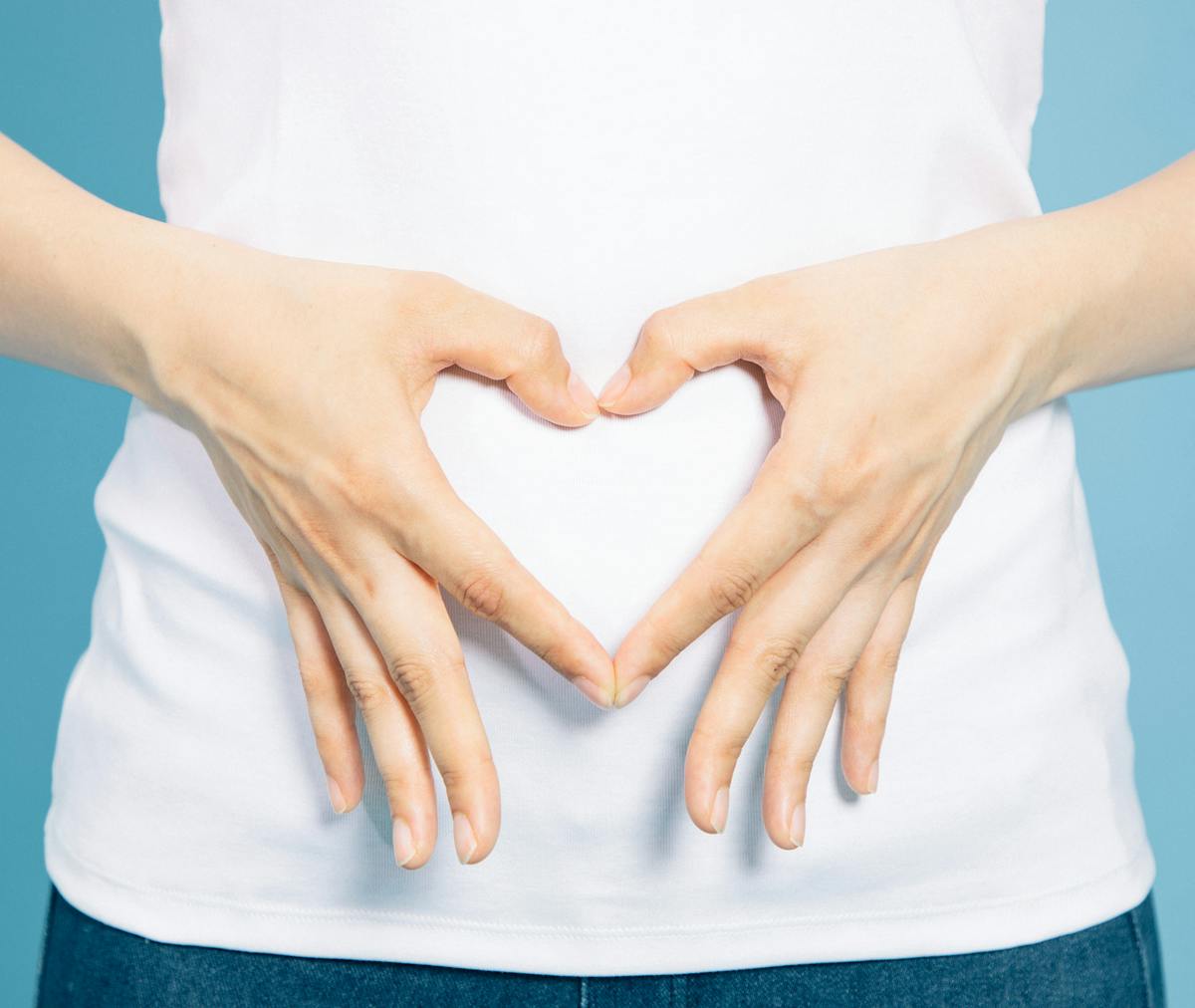Is a low-carb or keto diet right for you?
A low-carb or keto diet can have many benefits, but not everyone needs to be on one. This guide presents some things to consider when choosing whether or not this kind of diet is right for you.
You can also read about a scientific paper exploring the potential contraindications to a keto diet.
1. Do you need low carb?
Do you have health concerns that a low-carb or keto diet might address?
Reducing carbohydrate intake – a little or a lot – can be an important first step in improving a number of health issues, especially obesity and metabolic issues. These health improvements can often be achieved by diet alone, without medications or other interventions that may have serious side effects.1
A low-carb or keto diet is not a “cure-all,” but it can be a very effective first-line intervention or a complementary addition to therapies prescribed by a healthcare provider.
If you are already on medication — especially medications that lower blood sugar or blood pressure — or have other serious health concerns, you should seek the support of a healthcare provider when making any significant changes to your diet or lifestyle.
Can a low-carb or keto diet benefit you in other ways?
Dietary changes can affect other aspects of your life besides health, such as athletic performance, hunger levels, and the time you spend cooking. Although these areas are seldom investigated in scientific trials, many individuals and clinicians learn about these effects when using a low-carb or keto diet for other reasons.
You might not need a low-carb or keto diet if:
- You have no metabolic issues, are at a healthy weight, and otherwise tolerate carbohydrate foods easily.
- Diabetes and other metabolic diseases do not run in your family.
- You do not like to eat the kinds of foods that are encouraged on a low-carb or keto diet (although you can still do a keto diet even if you are vegetarian or vegan).
- You feel that reducing your intake of favorite carbohydrate foods would negatively impact your quality of life, no matter what health benefits might occur.
Some people may not have a reason to limit dietary carbohydrate, especially minimally-processed carbs such as root vegetables, fruit, and legumes. They feel great eating carbs, are at a healthy weight, and have no discernible health concerns, even after a thorough evaluation for glucose intolerance and insulin resistance.2
While carbohydrates are not needed for essential nutrition, they are in many foods that some people prefer to keep in their diets, such as fruit, whole grains, and below-ground vegetables.3
Health and lifestyle concerns
Follow the links to learn what science says about how a low-carb or keto diet can (or cannot) help:
2. Moderate low-carb or keto: how low-carb do you need to go?
A keto diet and a generic low-carb diet are similar, but not the same. The distinction is the amount of carbs you consume each day.
A keto diet is typically 20 grams of net carbs or fewer per day — although the exact amount may vary among individuals. At this level, most people will achieve some degree of nutritional ketosis, which means their bodies are burning more fat (as opposed to glucose) for energy needs.4
However, not everyone needs to reduce carbohydrates to this level in order to benefit.
Although not universally agreed upon by experts, at Diet Doctor we believe a low-carb diet can include any range of carbohydrate intake from zero up to 100 grams of net carbs per day. See our guide on ketosis and our visual guide to various amounts of carbs in a meal:
What level is right for you?
How do you decide which level of carb consumption is right for you? Once you pick a level, should you stick to it all the time? The answers vary among individuals, depending on their starting points, goals, health histories, and other considerations.
The simple recommendations are:
- If you are treating or adding a complementary therapy to an established medical condition (type 2 diabetes, dementia, seizures, cancer, etc.), a strict ketogenic diet may be the most effective way to start.5 If you have other wellness or lifestyle concerns, then a low-carb approach of under 100 grams a day may be equally effective.6
- If you are trying to lose a significant amount of weight, a strict ketogenic diet may be more effective.7 If you are trying to maintain weight, a more liberal low-carb diet may be equally effective.8
- If cutting carbohydrates in your diet will impact other aspects of your life in positive or negative ways, consider the level of carbohydrate reduction that is personally and socially feasible. A person is not just a medical condition or a number on a scale. Enjoyment of food, social activities that center around food, food cultures and traditions — these are all part of a person’s relationship with food. Taking these concerns into account can help you decide what level of carbohydrate reduction is right for you.
3. Where to start
If you decide that a low-carb or keto diet is right for you, here are some resources to help you get started:
4. Weight loss
Individuals can lose weight on a variety of diets. When comparing weight loss outcomes after a year or more, differences in diets often disappear.9 In this case, it is worth asking some other questions when choosing any diet for weight loss:
- Does this diet require “calorie counting” to deliberately restrict calories?
- What effect does the diet have on hunger and satiety?
- What effect does the diet have on resting metabolic rate?
- Can you maintain weight loss long term on this diet?
Here is how keto and low-carb diets both stack up against these questions:
1) No need to count calories: You may have heard that keto or low-carb diets are just another way of reducing calories to lose weight. At Diet Doctor, however, we recommend that people starting a low-carb or keto diet do not count calories. Instead, you eat when you are hungry and stop when you are full — provided that the foods you are eating are on the keto foods list or are found in our keto or low-carb recipes.
This approach usually has people feeling satisfied and full at lower calorie levels. In fact, in experimental settings, individuals who were put on a ketogenic diet had less hunger and a reduced appetite, which spontaneously reduced their calorie intake even though they were told to eat as much of the allowed foods as they would like.10 If you are not a fan of keeping track of your calories in-calories out, you may prefer to follow a low-carb or keto diet where you pay attention to what kinds of food you eat, rather than how much.
2) Reduced hunger, more satiety: Why do people on low-carb diets eat less without deliberately restricting calories? Making protein a priority can lead to feeling satisfied sooner.11 In addition, low-carb and keto meals may help trigger hormones that lead to a natural reduction in calorie intake, especially in those who are overweight or insulin resistant.12
A study comparing eating eggs to eating a bagel for breakfast showed that the low-carb, higher-protein egg breakfast increased satiety and reduced calorie intake for up to 36 hours. Another study showed that eggs for breakfast also led to a beneficial lowering of insulin and ghrelin – hormones known to affect hunger levels and food intake.13
You can read more about higher satiety keto approaches in our evidence-based guide.
3) Higher metabolic rate: You may have heard that “all diets fail” or that “the best diet for you is the one you can stick to.” While the second statement is certainly true, whether or not a diet “fails” may be at least partially related to its effect on metabolic rate. Choosing a lower-carb diet that preserves or increases resting energy expenditure may make it easier to maintain weight loss over the long-term.
At least two important studies have shown that a lower carb diet (10 – 20% of total calories) increases or preserves resting energy expenditure during weight loss maintenance, whereas a higher carbohydrate diet (60% of calories) decreases metabolic rate.14
4) Lasting results: A lower-carb diet can help maintain weight loss not only because of increased energy expenditure, but because the foods recommended on a low-carb diet are ones that many people enjoy ― and even miss when they are trying to count calories and reduce dietary fat. Keto and low-carb diets are full of above ground vegetables, dairy, eggs, meat, fish, cheese, butter, and more.
Any diet can be boring and monotonous, and only you can decide whether you prefer the recommended foods for a low-calorie, reduced-fat diet or a low-carb diet. But the many delicious and satisfying foods included in keto and low-carb diets can make these diets easy to “stick to” long term.
How low to go for weight loss?
No clinical studies as yet have compared low-carb to keto diets to determine which approach is better for weight loss. Clinical experience and opinion favor greater carbohydrate reduction for faster results.15
You may want to start with a ketogenic diet of fewer than 20 grams net carbohydrates and see how you do. Then, after a few months, if you want to transition to a 50- or even 75-gram carbohydrate diet, you can experiment with that. Just remember to focus on higher quality, minimally processed sources of carbohydrates. If you find your weight loss stalls or reverses, then you know a keto diet is more effective for you. If your weight loss continues at a pace you are happy with, then you can stick to a low-carb diet with slightly more carbs.16
Where to start: For more information on losing weight with a keto or low-carb diet, see our guide:

How to lose weight
Guide Do you have trouble losing weight? Or would you like to lose faster? You’ve come to the right place. Your weight is hormonally regulated. If you reduce the levels of your fat-storing hormone, insulin, you’ll have a way easier time losing excess weight. Get ready for weight loss without hunger.
5. Diabetes or pre-diabetes
Dr. Sarah Hallberg and her colleagues at Virta Health showed that a ketogenic diet is effective at reversing type 2 diabetes and eliminating the need for glucose-lowering medications.17
Within just 10 weeks, patients adhering to the ketogenic diet and receiving coaching significantly reduced their HbA1c, weight, and medication use. More importantly, after one year, 60 percent were still free of the metabolic signs of diabetes, had discontinued or greatly reduced their medications, and had improved other health issues including blood pressure, insulin resistance, inflammatory markers, and lipids.
By contrast, the majority of the usual care subjects saw most of their health issues worsen.18
Smaller randomized studies, which are a higher level of evidence, also support ketogenic diets for improving diabetes control.19
GuideAs we base our guides on scientific evidence, it is important to have a clear policy for how to grade the strength of different kinds of evidence. Our policy is in many ways similar to other documents of its kind.
The Diet Doctor policy for grading scientific evidence
Other studies have shown that various dietary and lifestyle interventions can improve type 2 diabetes, though the results of these studies are typically not as dramatic as Virta’s results, which showed an A1c reduction from 7.6 to 6.3 in one year.20
Looking at other popular diets, a randomized trial showed that a low-carb Mediterranean diet was better for glycemic control than a low-fat diet.21
A randomized trial of a vegan diet showed marginal improvements in diabetes markers and blood sugar control, with a reduction in HbA1c from 8.1 to 7.7 after a 74-week intervention.22 A paleo diet also showed modest improvement in diabetes markers and blood sugar control compared to a standard diabetes diet.23
In fact, any improvement upon a standard American diet is likely to show some benefit for type 2 diabetes, but when it comes to the degree of improvement, it appears that low-carb and ketogenic diets get top marks.
How low to go for diabetes?
Currently, available data suggest that a keto diet of less than 20 grams net carbs per day may be the most beneficial approach for treating type 2 diabetes, with real potential for putting the disease into remission. More liberal low-carb diets have also been shown to be effective, but keto diets will achieve more significant and faster improvement than other dietary interventions.
Where to start: For more information on treating type 2 diabetes with a keto or low-carb diet, see our guide:

How to reverse your type 2 diabetes
GuideDo you have type 2 diabetes, or are you at risk for diabetes? Do you worry about your blood sugar? Then you’ve come to the right place. You can normalize your blood sugar naturally as needed – without pills, calorie counting or hunger.
6. High blood pressure
When it comes to hypertension, most guidelines focus on the DASH (Dietary Approach to Stop Hypertension) diet, a diet which is low in fat and salt, with an abundance of fruits and vegetables. In the initial trials, compared to a standard American diet, the DASH diet did show a small reduction in systolic blood pressure (SBP).24
However, low-carb and keto diets can also be effective at lowering blood pressure. In fact, in one study, the very low-carb Atkins diet had twice the improvement in BP reduction as Zone, LEARN, and Ornish diets: it reduced SBP by 7.6 points, compared to 2-3 points for the other diets.25 Another non-randomized, uncontrolled study of a Spanish Mediterranean keto diet reduced SBP from 125 to 109.26
Generally speaking, any diet that reduces weight should reduce blood pressure, but the improvement in BP seen with low-carb diets may not simply be a function of weight loss but instead may be related to the diet itself.27 In fact, a randomized study showed that a keto diet vs. a low-fat diet plus the weight loss drug orlistat resulted in similar weight loss, but better BP reduction with keto.28
How low to go for hypertension?
There is a lack of trials comparing a keto diet to a low-carb diet for control of blood pressure. The data above suggest you may wish to start with a keto diet (less than 20 grams of net carbs) for the maximum effect of lowering blood pressure without medication. However, losing weight with a low-carb diet is also likely to have beneficial effects.
Where to start: For more information on controlling high blood pressure with a keto or low-carb diet, see our guide:

How to normalize your blood pressure
GuideElevated blood pressure is a common health issue today. Almost a third of U.S. adults have high blood pressure – perhaps you or someone in your family does? High blood pressure isn’t necessarily something you can feel, but it increases the risk of serious conditions such as strokes and heart attacks.
7. Irritable bowel syndrome (IBS)
Over the last decade, one of the accepted evidence-based treatments for irritable bowel syndrome (IBS) has been a low FODMAP diet.29 FODMAP is an abbreviation for “fermentable oligosaccharides, disaccharides, monosaccharides, and polyols,” which are different types of short-chain carbohydrates (except for polyols, which are sugar alcohols).
If the removal of various short-chain carbohydrates has been proven in multiple studies to improve IBS symptoms, it stands to reason that a general low-carb diet could also be beneficial for IBS.
A 2009 small, short, non-randomized, uncontrolled study showed significant improvement in IBS symptoms in 77 percent of participants with documented IBS who followed a keto diet.30 Aside from this study, however, data to support a keto or low-carb diet for IBS is scarce.
How low to go for IBS?
Not enough scientific evidence exists to support a definitive recommendation for keto or low-carb in the treatment of IBS. However, anecdotal evidence, clinical experience, and findings related to FODMAP diets suggest that a keto diet or a low-carb diet that focuses specifically on limiting FODMAP foods could be beneficial and is a reasonable approach.31
Where to start: For more information on treating IBS with a keto or low-carb diet, see our guide:

IBS and the keto diet
GuideWhen Audra Atkins-Reeves started the low-carb keto diet in October 2016, her only aim was to lose weight — and happily she found within five months she had lost 40 lbs (18 kg). She discovered another welcome, unexpected benefit: Within a month of starting the keto diet her gut was remarkably calm, quiet, and cooperative for the first time in decades.
8. Polycystic ovary syndrome (PCOS)
PCOS is the most common endocrine condition in women of reproductive age and is marked by hormonal disturbances that result in higher circulating male hormones, irregular or absent menstrual periods, and often cysts on the ovaries.
Women with PCOS are often overweight and have elevated insulin levels with insulin resistance.32 Additionally, some may tend to eat a higher glycemic index diet.33 The condition also puts women at much higher risk of both gestational diabetes and future type 2 diabetes.34
It is well-known that weight loss and treatment with metformin (a drug that enhances insulin sensitivity) will improve PCOS.35 Given that low-carb and keto diets are excellent at improving insulin resistance and causing weight loss, it makes sense that these types of eating strategies would also improve the signs and symptoms of PCOS.
Clinical trials have shown that modest restriction of dietary carbohydrate (41 to 43 percent of calories, not technically a low-carb diet and certainly not ketogenic) reduced markers of insulin resistance and decreased testosterone and cholesterol levels in women with PCOS.36 In another study, restricting carbohydrate to 40 percent of calories improved loss of fat mass in women with PCOS.37
One small 2005 study followed 11 women with PCOS as they embarked on a ketogenic diet for six months. The five women who completed the study greatly improved their weight, free testosterone levels, and fasting insulin levels. Two of them became pregnant during the study, despite previous infertility problems.38
In addition, a 2020 study used a ketogenic diet for 14 women with PCOS. The trial showed significant reductions in weight, glucose, insulin resistance, and testosterone, among other improvements.39
Some evidence also exists that fertility and reproductive health improves with a low-carb diet even in women without diagnosed PCOS. A systematic review of low-carb diets (defined as less than 45% of calories from carbs) in overweight and obese women showed positive effects on fertility hormones, ovulation, and pregnancy rates.40
Although these studies fail to compare moderately reduced carbohydrate diets to low-carb or keto diets, taken as a whole the data suggest that low-carb diets may be beneficial for treating PCOS and improving reproductive health and fertility.
How low to go for PCOS?
Any diet that leads to weight loss may be beneficial for PCOS, but lower carb diets have been shown to be successful at treating markers of PCOS and improving outcomes. It isn’t clear whether ketogenic diets are superior to low carb, as no studies have directly compared these.
Where to start: For more information on treating or reversing PCOS with a keto or low-carb diet, see our guides:
9. Cholesterol abnormalities
Low-carb and keto diets may improve many people’s overall cholesterol measures by reducing triglycerides (TG), raising HDL (high-density lipoprotein), and improving the size and density of LDL (low-density lipoprotein).41 Given that high triglycerides and low HDL are often present in those with insulin resistance, improvements in these markers with low-carb diets may reflect improvements in insulin sensitivity.42
Published in 2018, the one-year data from Virta Health’s non-randomized trial showed a 24 percent decrease in triglycerides, 18 percent increase in HDL (with an impressive 29 percent decrease in the TG/HDL ratio), 20 percent reduction in small dense LDL, and multiple other beneficial effects.43
Some individuals see a dramatic rise in LDL concentration and increases in LDL particle size on ketogenic diets. It is not clear how often this happens, but it is estimated that between 5 and 30% of individuals who eat a low-carb diet will respond with higher LDL levels.44 However, whether this is a concern or not is uncertain.45
How low to go for cholesterol issues?
For blood lipid markers, it’s not clear that there is a significant difference between a ketogenic (<20 g net carbs) diet or a low-carb (<100 g net carbs) approach because scientific studies have not compared the two. It is clear that a low-carb diet can improve these markers and that a ketogenic diet can have a dramatic impact on them.
You can read more about lowering triglycerides in our dedicated guide.
Where to start: For more information on addressing cholesterol issues with a keto or low-carb diet, see our guide:

Cholesterol and low-carb diets
GuideLearn what cholesterol is, how your body uses it, why low-carb and keto diets may lead to a change in blood cholesterol levels, and whether you should be concerned if your cholesterol increases with a keto or low-carb lifestyle.
10. Epilepsy
Ketogenic diets have been used as a treatment for childhood epilepsy (seizure disorder) since the 1920s and are still successfully used today for this purpose.46 The advent of seizure drugs has made nutritional ketosis mostly a second line treatment, but the development of safe, effective, consistent protocols has revived interest in these diets for seizure disorders.47
How low to go for epilepsy?
Specialists in treating childhood epilepsy with dietary interventions typically find that the higher the fat and lower the carb content, the more effective the diet. Therefore, a strict keto diet is likely to produce the most benefit by providing the brain with a steady supply of ketones it can use for fuel. In fact, there are some who experiment with exogenous ketones in this setting to supply the brain with higher levels of this alternative fuel, although there are no convincing studies to support this.48
Where to start: For more information on treating epilepsy with a keto diet, watch this video:
11. Cognitive decline, Alzheimer’s disease, and other neurological conditions
In treating existing cognitive decline, whether it is Alzheimer’s disease or other forms of dementia, switching the brain’s fuel from glucose to ketones appears to have a positive effect.49
Alzheimer’s disease is sometimes referred to as “type 3 diabetes,” as it appears to include insulin resistance in the brain with reduced ability of the brain cells to take up glucose.50 So switching fuel sources may be beneficial from a mechanistic point of view.
The biggest potential for using a ketogenic diet as a therapy may be in mild cognitive decline, but the lack of alternative treatments for severe cognitive decline make dietary changes attractive, although improvement has been difficult to demonstrate.51 This may also be an area where ketone supplementation could be beneficial, but again the level of evidence for consuming extra ketones over and above dietary changes is still low.52
Ketones appear to have a protective effect on the brain in general, and therefore we can speculate that a ketogenic diet may possibly benefit various neurological conditions such as traumatic brain injury, stroke, and other causes of nerve cell damage.53 This remains a hot topic of research.
How low to go for cognitive issues?
Early, limited data suggest a keto diet, which switches the brain’s fuel from glucose to ketones, may be beneficial in improving symptoms of Alzheimer’s dementia. While still highly exploratory, some individuals may want to try a ketogenic diet to see if their cognitive function improves when they remain in ketosis. To achieve this, most people would need to routinely stay under 20 grams of carbohydrate a day.
In theory, shifting the brain’s metabolism from glucose to ketones could offer protective effects for other neurological conditions. While ketogenic diets for posttraumatic brain injury, spinal cord injury, and Parkinson’s disease are now being actively researched, the data are preliminary and not solid enough to strongly recommend it as a therapy.
Where to start: Diet Doctor has written some articles about the burgeoning – but still controversial – field. We have also published a video presentation about insulin and the brain by psychiatrist Georgia Ede below:

The ketogenic diet for Alzheimer’s prevention and treatment: can it help?
GuideAlzheimer’s disease and other related neurodegenerative conditions, which impact memory, behavior and decision-making, are now an epidemic hitting all Western societies.
12. Cancer adjunctive therapy
Ketogenic diets have the potential to assist in the treatment of certain cancers. Some cancer cells have an abnormal metabolism such that they depend completely on glucose for their fuel and are unable to oxidize fatty acids.54 Theoretically, switching the body’s metabolic fuel source from glucose to fatty acids, as happens on a ketogenic diet, could potentially help treat some types of cancer.55
Based on the need to generate ketones, low-carb diets likely would not be as effective as keto diets. In addition, a ketogenic diet may help sensitize cancer cells to make radiation and chemotherapy more effective. Although the ultimate effect is speculative, this could help reduce the required dose to allow for adequate treatment with fewer toxic side effects.56
Animal research and limited human data suggest that a ketogenic diet may be beneficial when combined with traditional therapies for treating brain, prostate, colon, pancreatic and lung cancer.57 However, we should recognize that forms of cancer may differ greatly, and for some cancers, a ketogenic diet could actually stimulate tumor growth.58
Importantly, the amount of human evidence supporting a ketogenic diet for cancer treatment is limited, and this evidence supports a ketogenic diet combined with traditional treatment such as surgery, radiation and chemotherapy. There are no data showing a ketogenic diet to be superior to traditional therapy, or suggesting that it should be used as a solitary treatment.
This should be considered a scientific field in its infancy, with more information to come. You can learn more details in this podcast episode with cancer scientist Angela Poff, PhD.
How low to go?
It is too early to conclusively say keto diets help treat cancer, but preliminary evidence points to potential benefits for some cancers when combined with traditional therapies.
Furthermore, although no studies of this have been done, for an individual who is controlling type 2 diabetes or other conditions with a keto or low-carb diet, continuing this diet while undergoing cancer treatment might help to maintain overall health.
Where to start: For more information about how diet and cancer may be related, see Diet Doctor’s introductory discussion about the Warburg effect in cancer. Also see the Diet Doctor article discussing the existing science and debate around using the ketogenic diet as an addition to standard therapy for the brain cancer, glioblastoma.
13. Lifestyle concerns
Athletic performance
Athletic performance on a keto diet remains a controversial subject with conflicting data.59 Issues of adaptation time, type of exercise, differences of training and racing diets, and baseline fitness all play a role in measuring response. Some studies that found a negative response investigated the effect of a keto diet on performance over as little as four days.60 That is a woefully inadequate time to allow for adaptation to a keto diet.
However, others show reduced competitive athletic performance after 25 days of a ketogenic diet, which is still questionable with respect to whether the subjects had enough time to adequately adapt to fat-burning.61
Fully adapting to a keto diet may take a lot of time, something many athletes may not have in preparation for an event. Yet to see maximal benefit, there needs to be a shift in fuel metabolism from glucose to ketones, with enough time for the body to adapt to performing in nutritional ketosis.62 It is estimated that this adaptation period typically takes four to six weeks, but in some cases it may take much longer.63
Based on anecdotal reports, it appears there are subsets of endurance athletes who thrive on a ketogenic diet, just as there are subsets who do worse. As of now, the science does not adequately define a way to predetermine who will do well and who will not. If one is willing to do a self-experiment for a minimum of six months, then a trial of a ketogenic diet seems reasonable.
For those who struggle, transitioning to a non-ketogenic low-carb diet, such as 100 grams of carbs per day, might allow athletic performance to improve, especially for the more glycolytic (glucose burning) activities such as sprinting or interval demands (e.g. jiu jitsu). We don’t have solid evidence to compare a non-ketogenic low-carb diet to a high-carb diet, so again self-experimentation is likely the key to finding the best individualized approach.
Verdict: In theory, endurance exercise performance could improve with a keto diet after a prolonged adaptation period, but the data are inconclusive.
You can read more about other options for adjusting carb intake in our carb cycling guide.
Mental health, performance, and attention
This is an area full of anecdotal reports but with a shortage of scientific evidence. In theory, shifting the brain’s metabolism from glucose to ketones could be beneficial for cognitive function in general. Therefore, a ketogenic diet of under 20 grams is required. Even then, however, there is no consensus as to improved cognition. This is an area best left to self-experimenters to see if they happen to see improved mental clarity and less brain fog.
Verdict:No clear evidence. Self-experimentation with a keto diet is reasonable, as carbohydrate is a non-essential nutrient. Diet Doctor has written a few articles that explore the nature of the evidence so far for both mental health conditions and for attention deficit disorder.
Is a low-carb or keto diet right for you? - the evidence
This guide is written by Adele Hite, RD and was last updated on June 19, 2025. It was medically reviewed by Dr. Michael Tamber, MD on September 17, 2021 and Dr. Bret Scher, MD on September 25, 2022.
The guide contains scientific references. You can find these in the notes throughout the text, and click the links to read the peer-reviewed scientific papers. When appropriate we include a grading of the strength of the evidence, with a link to our policy on this. Our evidence-based guides are updated at least once per year to reflect and reference the latest science on the topic.
All our evidence-based health guides are written or reviewed by medical doctors who are experts on the topic. To stay unbiased we show no ads, sell no physical products, and take no money from the industry. We're fully funded by the people, via an optional membership. Most information at Diet Doctor is free forever.
Read more about our policies and work with evidence-based guides, nutritional controversies, our editorial team, and our medical review board.
Should you find any inaccuracy in this guide, please email andreas@dietdoctor.com.
This has been shown in meta-analyses of randomized controlled trials — considered the strongest, most robust type of evidence — comparing low-carb diets to low-fat and other diets:
PLoS One 2015: Dietary intervention for overweight and obese adults: comparison of low-carbohydrate and low-fat diets. a meta-analysis [strong evidence]
This meta-analysis showed that low carb reduced weight and triglycerides and raised HDL better than low fat, while it also raised LDL more than low fat:
The British Journal of Nutrition 2015: Effects of low-carbohydrate diets v. low-fat diets on body weight and cardiovascular risk factors: a meta-analysis of randomized controlled trials [strong evidence] ↩
Doctors do not always monitor for insulin resistance, so even when blood glucose is normal, insulin resistance could be progressing. A thorough health evaluation that includes a measure of insulin resistance can help determine whether reducing dietary carbohydrate would be a helpful intervention for you.
Journal of Diabetes Research 2016: Assessment of Insulin Resistance in Subjects with Normal Glucose Tolerance, Hyperinsulinemia with Normal Blood Glucose Tolerance, Impaired Glucose Tolerance, and Newly Diagnosed Type 2 Diabetes (Prediabetes Insulin Resistance Research) [nonrandomized study, weak evidence]
↩In their 2005 textbook, the U.S. Food and Nutrition Board of the Institute of Medicine states:
“The lower limit of dietary carbohydrate compatible with life apparently is zero, provided that adequate amounts of protein and fat are consumed.”
Institute of Medicine of the National Academies 2005:Dietary reference intakes for energy, carbohydrate, fiber, fat, fatty acids, cholesterol, protein, and amino acids [textbook chapter; ungraded] ↩
The digestible, non-fiber portion of carbs is often referred to as “net carbs,” which are calculated by subtracting fiber from the total carbs a food contains. It’s generally accepted that fiber isn’t digested and absorbed by the human digestive tract:
Nutrients 2010: Effects of dietary fiber and its components on metabolic health [overview article; ungraded]
At less than 20 grams of carbs, you’re likely guaranteed to be in ketosis — a state where your body burns mainly fat for fuel. However, some people may be able to achieve and maintain ketosis even at higher carb intake levels. In one study, healthy volunteers remained consistently in ketosis while consuming about 50 grams of net carbs per day:
Nutrition 2019: Effects of differing levels of carbohydrate restriction on mood achievement of nutritional ketosis, and symptoms of carbohydrate withdrawal in healthy adults: A randomized clinical trial [randomized trial; moderate evidence]
However, those who are overweight or have baseline insulin resistance may require a stricter approach, limiting net carbs to 20 grams per day. ↩
European Journal of Clinical Nutrition 2013: Beyond weight loss: a review of the therapeutic uses of very-low-carbohydrate (ketogenic) diets [overview article; ungraded] ↩
This is based on clinical experience of low-carb practitioners and was unanimously agreed upon by our Low-Carb Expert Review Panel. You can learn more about our panel here. [weak evidence]. ↩
In many studies, restricting carbs to less than 50 grams per day has been found to greatly aid weight loss:
The British Journal of Nutrition 2013: Very-low-carbohydrate ketogenic diet v. low-fat diet for long-term weight loss: a meta-analysis of randomised controlled trials [systematic review of randomized trials; strong evidence]
Obesity Reviews 2016: Impact of low-carbohydrate diet on body composition: meta-analysis of randomized controlled studies [systematic review of randomized trials; strong evidence] ↩
This is mainly based on the clinical experience of low-carb practitioners [weak evidence] ↩
In a meta-analysis of 45 trials, average weight loss among people eating low-carb or low-fat diets was virtually the same at one year:
Journal of the American Medical Association 2014: Comparison of weight loss among named diet programs in overweight and obese adults: a meta-analysis [strong evidence]
However, this needs to be interpreted with caution as many trials, such as the DIETFITS trial, start with a very low-carb intervention but then liberalize the carb intake as the trial moves on. At the end of the DIETFITS trial, the “low carb” group was eating 130 grams of carbs per day and the “high carb” group was at 210 grams.
JAMA 2018: Effect of Low-Fat vs Low-Carbohydrate Diet on 12-Month Weight Loss in Overweight Adults and the Association With Genotype Pattern or Insulin Secretion: The DIETFITS Randomized Clinical Trial [randomized trial; moderate evidence]
↩Obesity Review 2015: Do ketogenic diets really suppress appetite? A systematic review and meta-analysis [strong evidence]
American Journal of Clinical Nutrition 2008: Effects of a high-protein ketogenic diet on hunger, appetite, and weight loss in obese men feeding ad libitum [case series; weak evidence] ↩
Nutrients 2018: Protein from meat or vegetable sources in meals matched for fiber content has similar effects on subjective appetite sensations and energy intake-a randomized acute cross-over meal test study [randomized trial; moderate evidence]
Advances in Nutrition 2015: Effect of macronutrient composition on short-term food intake and weight loss. [overview article; ungraded] ↩
Nutrition, Metabolism and Cardiovascular Diseases 2017: The Effects of a low-carbohydrate diet on appetite: A randomized controlled trial [moderate evidence] ↩
Although each meal contained an identical amount of calories, individuals who consumed the egg breakfast stayed full longer and ate fewer calories for the rest of the day than the bagel group did:
Journal of the American College of Nutrition 2005: Short term effect of eggs on satiety in overweight and obese subjects. [randomized controlled trial; moderate evidence]
Nutrition Research 2010: Consuming eggs for breakfast influences plasma glucose and ghrelin, while reducing energy intake during the next 24 hours in adult men [crossover trial; moderate evidence] ↩
British Medical Journal 2018: Effects of a low carbohydrate diet on energy expenditure during weight loss maintenance: randomized trial [moderate evidence]
Journal of the American Medical Association 2012: Effects of Dietary Composition During Weight Loss Maintenance: A Controlled Feeding Study [randomized controlled trial; moderate evidence]
↩This is based on clinical experience of low-carb practitioners and was unanimously agreed upon by our Low-Carb Expert Review Panel. You can learn more about our panel here [weak evidence].
Additionally, one meta-analysis of RCTs found that very-low-carb diets limited to 50 grams of carbohydrates per day resulted in greater fat loss than low-carb diets that provided about 40% of calories from carbs:
Obesity Reviews 2016: Impact of low‐carbohydrate diet on body composition: meta‐analysis of randomized controlled studies [strong evidence for fat mass loss on very low-carb diets in particular] ↩
Remember to also pay attention to your health markers. After all, the best weight loss also improves your overall health! ↩
Some disagree with the use of the word “reverse” when it comes to type 2 diabetes. The concern is that it may imply the disease is completely gone, never to return. At Diet Doctor, we use the term “reverse” to indicate that blood sugar levels are no longer in the diabetic range. However, we acknowledge that blood sugars will likely return to the diabetic range if a patient goes back to their prior high-carb eating habits. Therefore, “reverse” does not imply a forever cure and we believe it can be used interchangeably with “remission.”
The Virta trial enrolled 262 adult volunteers with type 2 diabetes who were coached and supported to achieve nutritional ketosis by the Virta program — called a continuous care intervention (CCI). For comparison, the study also enrolled 87 adult volunteers who received the typical care and support for treatment of type 2 diabetes. This included appointments with their physician and consultations with registered dietitians focusing on the American Diabetes Association guidelines.
Diabetes Therapy 2018: Effectiveness and safety of a novel care model for the management of type 2 diabetes at 1 year: an open-label, non-randomized, controlled study [non-randomized trial; weak evidence] ↩
It is worth noting that the Virta study was not a randomized controlled trial, as its participants were not randomly assigned to the keto/coaching vs usual care groups. As such, it does not conclusively prove that Virta’s model is better than usual care, and is thus considered a lower level of evidence. But it does clearly show that, in their select population, their treatment intervention was very successful at reducing or eliminating glucose-lowering and other medications. ↩
In 2008, Dr. Eric Westman led a randomized study that showed a ketogenic diet had more robust results than a low glycemic index diet for diabetes control, although both had positive effects:
Nutrition & Metabolism 2008: The effect of a low-carbohydrate, ketogenic diet versus a low-glycemic index diet on glycemic control in type 2 diabetes mellitus [randomized trial; moderate evidence]
Nutrients 2020: Impact of a ketogenic diet on metabolic parameters in patients with obesity or overweight and with or without type 2 diabetes: A meta-analysis of randomized controlled trials [systematic review of randomized trials; strong evidence]
Nutrition & Diabetes 2017: Twelve-month outcomes of a randomized trial of a moderate-carbohydrate versus very low-carbohydrate diet in overweight adults with type 2 diabetes mellitus or prediabetes [moderate evidence] ↩
While we cannot directly compare different trials since they differ in subject characteristics, protocol, and other factors, it is hard to ignore the different magnitudes of results.
New England Journal of Medicine 2002: Reduction in the incidence of type 2 diabetes with lifestyle intervention or metformin [randomized trial; moderate evidence]
Frontiers of Public Health 2015: Effect of Mediterranean diet in diabetes control and cardiovascular risk modification: a systematic review [moderate evidence] ↩
Annals of Internal Medicine 2009: Effects of a Mediterranean-style diet on the need for antihyperglycemic drug therapy in patients with newly diagnosed type 2 diabetes: a randomized trial [moderate evidence] ↩
American Journal of Clinical Nutrition 2009: A low-fat vegan diet and a conventional diabetes diet in the treatment of type 2 diabetes: a randomized, controlled, 74-wk clinical trial [moderate evidence] ↩
Cardiovascular Diabetology 2009: Beneficial effects of a Paleolithic diet on cardiovascular risk factors in type 2 diabetes: a randomized cross-over pilot study [moderate evidence] ↩
The BP lowering effects were more pronounced in those who already had hypertension and ate a baseline diet low in potassium (low in fruits and vegetables).
New England Journal of Medicine 1997: A clinical trial of the effects of dietary patterns on blood pressure [randomized trial; moderate evidence] ↩
Journal of the American Medical Association 2007: Comparison of the Atkins, Zone, Ornish, and LEARN diets for change in weight and related risk factors among overweight premenopausal women [randomized trial; moderate evidence] ↩
Nutrition Journal 2008: Spanish ketogenic Mediterranean diet: a healthy cardiovascular diet for weight loss [non-randomized trial; weak evidence] ↩
Research is still preliminary, but low-carb diets may improve BP via a number of mechanisms: weight loss, lower levels of circulating insulin, reduced insulin resistance, improved insulin sensitivity, reduction in sodium retention by the kidney, lowered blood sugar, and others.
International Journal of Environmental Research and Public Health 2019: Substantial and sustained improvements in blood pressure, weight and lipid profiles from a carbohydrate restricted diet: an observational study of insulin resistant patients in primary care [cohort study; weak evidence] ↩
Archives of Internal Medicine 2010: A randomized trial of a low-carbohydrate diet vs orlistat plus a low-fat diet for weight loss [moderate evidence] ↩
Gut 2021: Efficacy of a low FODMAP diet in irritable bowel syndrome: systematic review and network meta-analysis [strong evidence]
Journal of Gastroenterology & Hepatology 2010: Evidence-based dietary management of functional gastrointestinal symptoms: the FODMAP approach [strong evidence] ↩
Clinical Gastroenterology and Hepatology 2009: A very low-carbohydrate diet improves symptoms and quality of life in diarrhea-predominant irritable bowel syndrome [nonrandomized study, weak evidence] ↩
This is based on consistent clinical experience of low-carb practitioners. [weak evidence] ↩
Minerva Endocrinology 2015: Obesity and polycystic ovary syndrome [discussion of mechanisms; ungraded]
Endocrine Reviews 2012: Insulin resistance and the polycystic ovary syndrome revisited: an update on mechanisms and implications [overview article; ungraded] ↩
Global Journal of Health Science 2016: Comparison of dietary intake between polycystic ovary syndrome women and controls [case control study; weak evidence] ↩
Gynecological Endocrinology 2016: The effects of polycystic ovary syndrome on gestational diabetes mellitus [case control study; weak evidence]
Minerva Ginecologica 2004: Type 2 diabetes and the polycystic ovary syndrome [overview article; ungraded] ↩
Cochrane Database of Systematic Reviews 2011: Lifestyle changes in women with polycystic ovary syndrome [systematic review of RCTs, strong evidence] ↩
Fertility & Sterility 2013: Role of diet in the treatment of polycystic ovary syndrome [non-randomized crossover study; weak evidence]
Clinical Endocrinology 2013: Favourable metabolic effects of a eucaloric lower‐carbohydrate diet in women with PCOS [randomized, uncontrolled crossover study; weak evidence] ↩
Metabolism 2014: Effects of a eucaloric reduced-carbohydrate diet on body composition and fat distribution in women with PCOS [non-randomized, crossover study; weak evidence] ↩
The positive results of this study should not be taken as solid evidence, given the high dropout rate, among other limitations.
Nutrition & Metabolism 2005: The effects of a low-carbohydrate, ketogenic diet on the polycystic ovary syndrome: a pilot study [exploratory, nonrandomized study; weak evidence] ↩
Journal of Translational Medicine 2020: Effects of a ketogenic diet in overweight women with polycystic ovary syndrome [nonrandomized, uncontrolled study, weak evidence] ↩
Nutrients 2017: The effect of low carbohydrate diets on fertility hormones and outcomes in overweight and obese women: a systematic review [strong evidence] ↩
Metabolism 2012: Effect of short-term low- and high-fat diets on low-density lipoprotein particle size in normolipidemic subjects [randomized double blind crossover study; moderate evidence]
American Journal of Clinical Nutrition 2006: Separate effects of reduced carbohydrate intake and weight loss on atherogenic dyslipidemia [randomized double blind crossover study; moderate evidence] ↩
Meta-analyses of randomized trials consistently show better reduction of TG and increase in HDL with low-carb compared to low-fat diets, along with greater weight loss.
International Journal of Endocrinology 2021: Comparing the efficacy and safety of low-carbohydrate diets with low-fat diets for type 2 diabetes mellitus patients: a systematic review and meta-analysis of randomized clinical trials [strong evidence]
American Journal of Epidemiology 2012: Effects of low-carbohydrate diets versus low-fat diets on metabolic risk factors: a meta-analysis of randomized controlled clinical trials [strong evidence]
British Journal of Nutrition 2013: Very-low-carbohydrate ketogenic diet v. low-fat diet for long-term weight loss: a meta-analysis of randomised controlled trials [strong evidence] ↩
It’s also worth noting that, although LDL concentration increased slightly, LDL particle number decreased by 5 percent ― showing that LDL became larger and less dense ― and the 10-year ASCVD (Atherosclerotic Cardiovascular Disease) risk score improved by 12 percent.
Diabetes Therapy 2018: Effectiveness and safety of a novel care model for the management of type 2 diabetes at 1 year: an open-label, non-randomized, controlled study [weak evidence] ↩
This is based on clinical experience of low-carb practitioners and was unanimously agreed upon by our Low-Carb Expert Review Panel. You can learn more about our panel here [weak evidence]. ↩
The argument has been made that a keto-induced increase in LDL with a concomitant decrease in glucose, insulin, triglycerides, inflammatory markers, and visceral fat may not be as concerning as a high LDL in those with persistently uncontrolled risk factors. This hypothesis falls outside the current evidence base and, therefore, the decision to continue the diet and possibly treat the high LDL needs to be made with your healthcare provider. ↩
Lancet Neurology 2008: The ketogenic diet for the treatment of childhood epilepsy: a randomised controlled trial [moderate evidence] ↩
Epilepsia Open 2018: Optimal clinical management of children receiving dietary therapies for epilepsy: updated recommendations of the International Ketogenic Diet Study Group [protocol; moderate evidence] ↩
Aging (Albany, NY) 2016: Reversal of cognitive decline in Alzheimer’s disease [case series; weak evidence]
International Journal of Molecular Science 2019 Ketogenic diet in Alzheimer’s disease [overview article; ungraded] ↩
Journal of Diabetes Science & Technology 2008: Alzheimer’s disease is type 3 diabetes – evidence reviewed [discussion of mechanisms; ungraded] ↩
Neurobiology of Aging 2012: Dietary ketosis enhances memory in mild cognitive impairment [randomized trial; moderate evidence] ↩
Nutrition and Metabolism 2009: Study of the ketogenic agent AC-1202 in mild to moderate Alzheimer’s disease: a randomized, double-blind, placebo-controlled, multicenter trial [randomized trial; moderate evidence] ↩
Behavioural Pharmacology 2008: Neuroprotective and disease-modifying effects of the ketogenic diet [overview article; ungraded] ↩
Redox Biology 2014: Ketogenic diets as an adjuvant cancer therapy: history and potential mechanism [overview article; ungraded]
↩Medical Oncology 2017: Beneficial effects of ketogenic diets for cancer patients: a realist review with focus on evidence and confirmation [review of studies; weak evidence] ↩
This is based on limited evidence and clinical experience. [very weak evidence] ↩
Aging (Albany NY) 2018: Ketogenic diet in cancer therapy [overview article; ungraded] ↩
Cell Metabolism 2017: Prevention of dietary-fat-fueled ketogenesis attenuates BRAF V600E tumor growth [limited scientific review; very weak evidence] ↩
Sports Medicine 2015: Re-examining high-fat diets for sports performance: did we call the ‘nail in the coffin’ too soon? [expert opinion; no evidence] ↩
Journal of Sports Medicine & Physical Fitness 2018: Low-carbohydrate, ketogenic diet impairs anaerobic exercise performance in exercise-trained women and men: a randomized-sequence crossover trial [randomized trial; moderate evidence] ↩
PLoS One 2020: Crisis of confidence averted: Impairment of exercise economy and performance in elite race walkers by ketogenic low carbohydrate, high fat (LCHF) diet is reproducible [randomized trial; moderate evidence] ↩
Metabolism 2016: Metabolic characteristics of keto-adapted ultra-endurance runners [case series; weak evidence] ↩
The Journal of Clinical Investigation 1980: Capacity for moderate exercise in obese subjects after adaptation to a hypocaloric, ketogenic diet
[non-controlled study; weak evidence]Nutrition & Metabolism 2004: Ketogenic diets and physical performance [overview article; ungraded]
The leading book on the keto diet and athletic performance is The Art and Science of Low Carbohydrate Performance by Jeff Volek PhD, RD and Dr. Stephen Phinney, MD, PhD.
The authors note on the book’s website: “The key fact underlying this book is that you can train your body to burn fat by simply changing your diet over a period of a few weeks, thereby turning blood sugar and glycogen into secondary fuels. Once you make this transition, you can then train harder, perform longer, and recover faster.“ ↩












